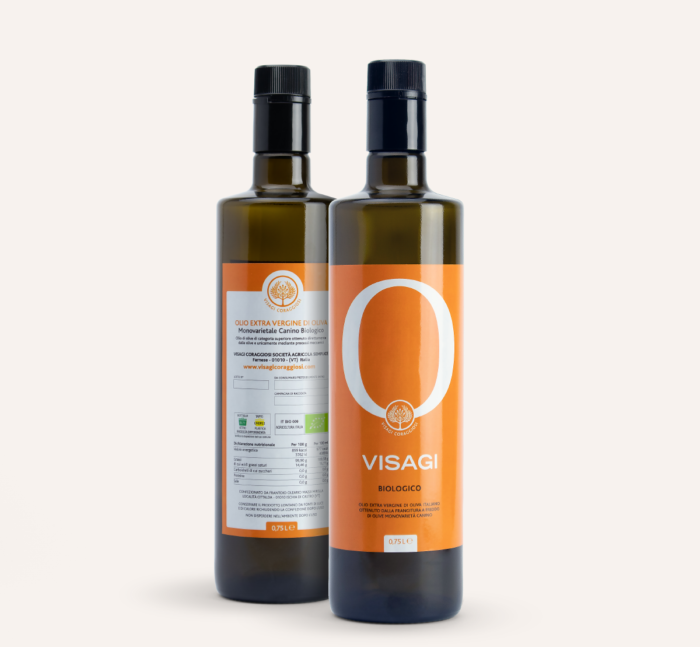
Regular Olive Oil vs Extra-Virgin Olive Oil: What’s the Difference?
Olive oil and extra virgin olive oil are both oils obtained from the pressing of olives, but they have some significant differences in terms of production process, quality, taste and use. In this article, we will explore the main differences between these two types of oil.
Oil production process
Extra virgin olive oil
Extra virgin olive oil is obtained exclusively through mechanical processes, which allow the organoleptic properties of the olives to remain intact. This type of oil is extracted from the first pressing of the olives and does not undergo any chemical treatment or refining. The acidity of extra virgin olive oil must not exceed 0.8%. The acidity of P.D.O. extra virgin olive oil may not exceed 0.4 per cent.
Olive oil
Olive oil, on the other hand, is an oil that contains only olive oils that have undergone a refining process and oils obtained directly from olives. This type of oil can be obtained by pressing olives of inferior quality or from olives that have been harvested under less ideal conditions. Unlike extra virgin oil, olive oil can undergo refining processes to remove impurities and improve flavour.
Quality and flavour
Extra virgin olive oil
Extra virgin olive oil is considered the highest quality olive oil. It has a richer and more complex flavour, with fruity, herbaceous and sometimes spicy notes. Extra virgin olive oil is ideal for dressing salads, vegetables, pasta and other raw dishes, as its distinctive flavour can enrich and enhance the taste of food.
Olive oil
Olive oil has a more neutral and less intense flavour than extra virgin oil. It is suitable for cooking, frying and other culinary preparations requiring high temperatures, as its less pronounced flavour does not alter the taste of other ingredients. However, olive oil can also be used raw, but it will not have the same impact on the flavour of the dish as extra virgin oil.
Use in cooking
Extra virgin olive oil
Extra virgin olive oil is ideal for dressing salads, vegetables, pasta and other raw dishes. It can also be used for cooking, but it is important to bear in mind that heat can alter its flavour and reduce its beneficial properties. Therefore, it is advisable to use extra virgin olive oil at moderate temperatures and add it at the end of cooking to preserve its flavour and nutritional benefits.
Olive oil
Olive oil is suitable for cooking, frying and other culinary preparations that require high temperatures. It has a higher smoke point than extra virgin oil, which makes it more resistant to high temperatures. However, olive oil can also be used raw, but it will not have the same impact on the flavour of the dish as extra virgin oil.
Conclusion
In summary, the main difference between olive oil and extra virgin olive oil lies in the production process, quality and flavour. Extra virgin olive oil is obtained from the first pressing of olives and does not undergo any chemical treatment or refining. It has a richer, more complex flavour and is often used raw to dress salads, vegetables and pasta. Olive oil, on the other hand, can be obtained from the pressing of lower quality types of oli ves or from olives that have been harvested under less ideal conditions. It has a more neutral and less intense flavour and is often used for cooking and frying.
Footnotes
- What are the differences between olive oil and extra virgin olive oil
- the difference between extravirgin and olive oil – Madrepuglia
- Do you know the difference between ‘extra virgin olive oil’ and ‘olive oil ‘?
- Difference between oliveoil and extra virgin
- Difference betweenevo oil and oliveoil
- Difference betweenolive oil and extra virgin – Fratelli Carli
- What is the difference between olive oil and extra virgin? –OlivYo u
- The difference between olive oil and extra virgin – Melarossa

